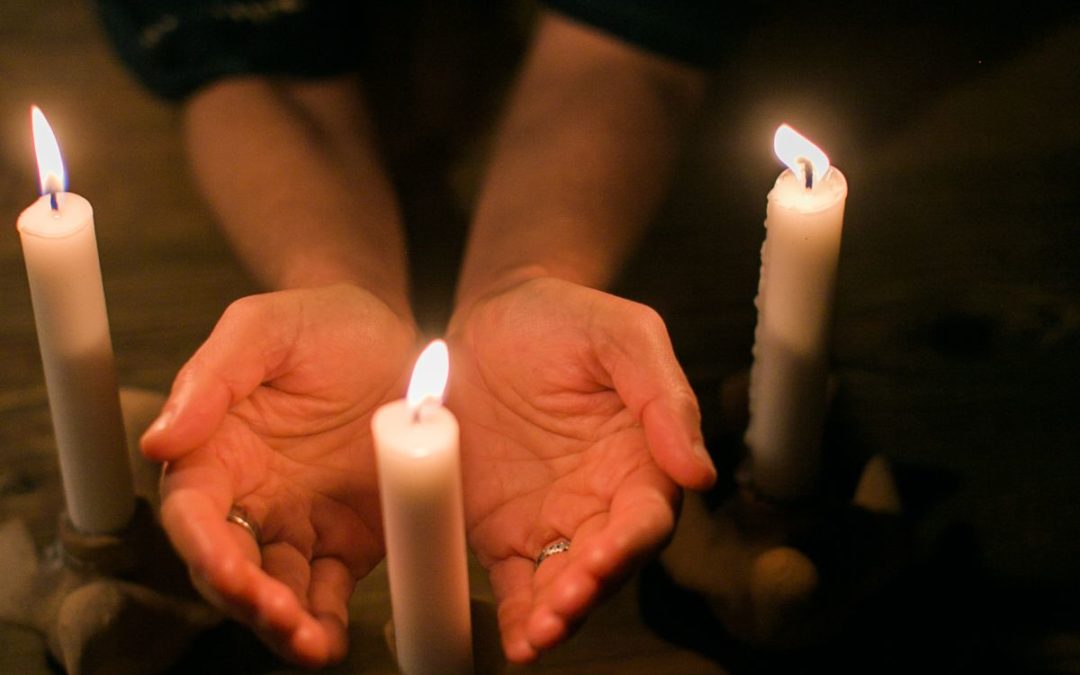You don’t have to lose yourself or your healthy habits during the holiday season.
KEY POINTS
- The holidays can be a time of joy, but they can also be stressful and overwhelming.
- If you can identify your unhealthy avoidance strategies, you can make better choices.
- Self-validation and prioritization of enjoyment and meaning can also improve your experiences this holiday season.
The holidays are a time that many people look forward to—sparkling lights, family, good food, and gift-giving. But they are also a time when people feel increased stress. Family conflict, financial stress, grief, and overwhelm can send you toward unhealthy patterns of coping. However, you don’t have to lose yourself or your healthy habits during the holiday season.
These three strategies from Acceptance and Commitment Therapy will help:
Stay on track with acceptance and commitment toward your values.
1. Know what makes things worse.
Do you try to avoid holiday stress by drinking too much, overeating, isolating, overspending, or over-scheduling yourself? What’s your experiential avoidance go-to? Plan ahead by making a list of your hiding holes so that you don’t fall into them.
Here are some common avoidance strategies:
- Numbing out with substances
- Checking out with technology
- Isolating or canceling plans
- Blaming others and being judgmental
- Blaming yourself and being self-critical
- Overeating, under-eating, or overexercising
- Procrastinating
- Overspending
In the short term, you might feel relief by avoiding or controlling stress in this way, but in the long term, it’s likely to make things worse. Before you run from stress with unhealthy coping behaviors, pause, remember the long-term costs, and turn toward yourself with compassion (see the next step!).
2. Stay on your own side.
There are over two decades of research documenting the benefits of self-compassion when facing a challenge (Neff 2021). With self-compassion, you acknowledge that it’s human to experience pain and turn toward yourself with kindness, warmth, and courage. Rather than running away from the stress, overwhelm, and grief that the holidays bring, you comfort and encourage yourself with a wise inner voice.
You don’t need special scented candles to practice self-love, it is available to you all the time, wherever you are. Below are some self-compassionate statements. Which ones resonate with you?
- It’s understandable you are stressed. This is a difficult time of year.
- Your grief is an indicator that you care; it’s OK to feel sad.
- No one is perfect, and everyone makes mistakes. Allow yourself to be human.
- We all feel left out sometimes. I am here for you every step of the way.
- Every moment is a new beginning. You can get back on track and take care of yourself right now.
Make your own self-compassion statement and write it on a sticky note to keep somewhere you will see it. Or take 10 minutes to listen to a self-compassion meditation.
3. Focus on meaning, psychological richness, and fun.
The holidays can be a time when we get caught in a whirlwind of endless activities. Instead of mindlessly saying yes, rethink how you want to prioritize your time. According to social psychologist Erin Westgate, a well-lived life has three components:
- Happiness: experiencing pleasure, comfort, and security
- Meaning: feeling like you are making a difference in the world
- Psychological Richness: having perspective-shifting experiences full of variety and interest
Craft your holiday season to be a well-lived one by curating your activities. Subtract unfulfilling shoulds and expectations and replace them with enjoyable, meaningful, and enriching experiences. If you can’t subtract an obligation, look for ways to up the happiness, meaning, or richness quotients. Leave some space between these rich activities so that you can really take in their goodness. Like a rich cake, a psychologically rich life deserves to be savored.


